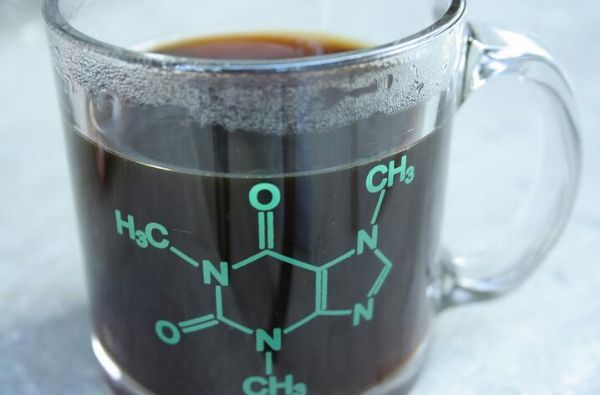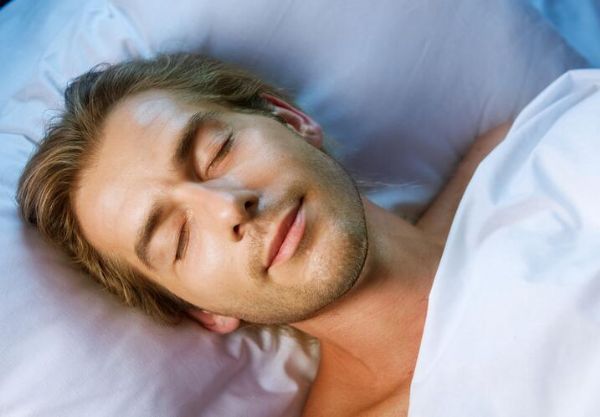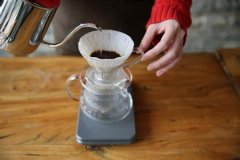Will a coffee nap energize us?

April 21, 2017 / Biological Valley BIOON/-Coffee and naps seem to have something in common. They both wake us up and enhance our behavior, but some people think that having a cup of coffee before a nap may make us more energetic after waking up; is that really the case? Is there any research evidence to explain this "coffee break" (coffee naps)? And can we get a good night's sleep?
Sleepy?
If we don't get enough sleep, researchers define the condition as "sleep debt". Napping is a common way to overcome drowsiness and recover from sleep debt, while drinking coffee can help us spend the day. Since the 1990s, researchers have been studying how to combine naps and coffee to help improve human health.
In a study conducted in 1997, 12 insomniacs were asked to drink a large cup of coffee and then take a nap for 15 minutes, followed by some simulated driving tests to check their alertness. although eating coffee without a nap can also help improve the driving performance of participants, it is more likely to improve the performance of participants if combined with coffee nap Coffee nappers may be less likely to get off track during simulated driving than drinking coffee (not taking a nap) or decaffeinated coffee drinks (not taking a nap).
Coffee naps may improve participants' performance better if they take naps instead of deep sleep, and once participants get up, coffee naps can reduce their drowsiness and maintain alertness for hours. However, this early, small study also raised a number of questions. For example, we don't know how much coffee the participants consumed or whether they were prone to some caffeine shock.

The working principle of "coffee nap"
In order to understand the mechanism of this coffee nap, we need to explore how the body processes caffeine. When drinking coffee, caffeine stays in the stomach for a period of time before moving to the small intestine. Caffeine begins to be absorbed and dispersed throughout the body. It takes 45 minutes from drinking coffee to being absorbed by the body. But the wake-up effect of caffeine tends to occur earlier, about 30 minutes after drinking coffee, so drinking coffee within 15 minutes before a nap may not affect the body's sleep.
Once we wake up from a nap, we not only feel a "shock", but also often feel the effect of caffeine a few hours after drinking coffee; although caffeine is broken down in the liver, but after consuming a moderate level of caffeine, half of the caffeine stays in the bloodstream for 4-5 hours, and it often takes longer for the body to remove large amounts of caffeine from the body. When we wake up from sleep, the "shock" and "long tail effect" of caffeine tend to make us very energetic throughout the day.
How much coffee is safe to eat?
At present, there is a lot of research evidence that coffee nap can work, but is it safe? If we take into account caffeine consumption, 300-500mg of caffeine a day (2-3 large cups of coffee) seems to be safe, of which about 70% of caffeine is converted to paraxanthine, which has no significant toxic effect on the body. But consuming too much caffeine (more than 500mg a day) may cause symptoms such as nervousness, anxiety, irritability, restlessness and palpitations.
The Joint Food Standard (Food Standards Australia New Zealand) of New Zealand and Australia states that children between the ages of 5 and 12 consume 95mg caffeine every day, while adults who consume 210mg caffeine every day can increase their anxiety levels.
In fact, we tend to consume far more caffeine than the body needs, such as caffeinated drinks on supermarket shelves (Red Bull, etc.) and some drugs (Panadol Extra). We can monitor the body's caffeine intake by checking the amount of caffeine in common drinks, foods and drugs. If caffeine intake is excessive and we want to block caffeine intake, caffeine withdrawal tends to cause headaches, drowsiness and decreased alertness; therefore, caffeine use disorder is considered to be a disease that needs further study in the fifth edition of the Diagnostic and Statistical Manual of Mental Disorders, given the nature of caffeine addiction.

Is a coffee nap the best way to pay off your sleep debt?
When a coffee nap keeps us energized for hours, it may not be the best way to pay off our sleep debt; getting enough sleep on most days may be the best way to improve body alertness, performance and productivity, because sleep is important to a range of brain and body functions Getting enough sleep can significantly reduce an individual's risk of car accidents, weight gain, obesity, diabetes and depression. (biological Valley Bioon.com)
Reference:
[1] Health Check: does caffeine enhance performance?
[2] Explainer: can you pay off your 'sleep debt'?
[3] Want to boost your memory and mood? Take a nap, but keep it short
[4] What's the buzz on caffeine?
[5] Suppression of sleepiness in drivers: Combination of caffeine with a short nap
Psychophysiology DOI: 10.1111/j.1469-8986.1997.tb02148.x
[6] Caffeine disposition after oral doses
Clinical Pharmacology & Therapeutics DOI: 10.1038/clpt.1982.132
[7] Dose-Dependent Pharmacokinetics and Psychomotor Effects of Caffeine in Humans
Clinical Pharmacology DOI: 10.1002/j.1552-4604.1997.tb04356.x
[8] Metabolic rate and the restorative function of sleep
Physiology & Behavior doi:10.1016/0031-9384 (95) 02093-4
[9] Methylxanthines: Toxicity to humans. 3. Theobromine, paraxanthine and the combined effects of methylxanthines
Food and Chemical Toxicology doi:10.1016/0278-6915 (88) 90073-7
[10] Food Standards Australia New Zealand
[11] Caffeine Chart
[12] Human coffee drinking: reinforcing and physical dependence producing effects of caffeine.
Journal of Pharmacology and Experimental Therapeutics
[13] Monday's medical myth: you need eight hours of continuous sleep each night
[14] What is going on in your brain when you sleep?
[15] Health Check: what are 'coffee naps' and can they help you power through the day?
Important Notice :
前街咖啡 FrontStreet Coffee has moved to new addredd:
FrontStreet Coffee Address: 315,Donghua East Road,GuangZhou
Tel:020 38364473
- Prev

Hand-made coffee is intended to share
Modern cities make most people look like a wind-up top, and everything seems to be in acceleration mode, so urbanites yearn for a moment to slow down and enjoy life. Under this demand, hand-brewed coffee has become popular in China because of its slow and exquisite characteristics. Although it still stays in a small group, it is undeniable that it has brought a new type of
- Next

Louisa Coffee creates a series of small farmers
Louisa Coffee supports the public good by donating AMA Cafe coffee machines and providing training courses for coffee instructors for battered women. Louisa Coffee Farmer series of drinks latte fresh cream, each cup price 80 yuan, taste fresh price 1 cup 75 yuan. Mother's Day restricts raspberry cheese naked cake to be made with natural ingredients for health and burden-free, the original price is 550 yuan, the pre-order discount price is 499 yuan before May 7, and goods can be picked up in the store. Small peasant system
Related
- Can I make coffee a second time in an Italian hand-brewed mocha pot? Why can't coffee be brewed several times like tea leaves?
- Hand-brewed coffee flows with a knife and a tornado. How to brew it? What is the proportion of grinding water and water temperature divided into?
- What is the difference between Indonesian Sumatra Mantinin coffee and gold Mantinin? How to distinguish between real and fake golden Mantelin coffee?
- What does bypass mean in coffee? Why can hand-brewed coffee and water make it better?
- Unexpected! Ruixing Telunsu lattes use a smoothie machine to foam milk?!
- % Arabia's first store in Henan opens into the village?! Netizen: Thought it was P's
- Does an authentic standard mocha coffee recipe use chocolate sauce or powder? Mocha Latte/Dirty Coffee/Salty Mocha Coffee Recipe Share!
- What is the difference between Vietnam egg coffee and Norway egg coffee? Hand-brewed single product coffee filter paper filter cloth filter flat solution!
- What is the difference between sun-cured and honey-treated coffee? What are the differences in the flavor characteristics of sun-honey coffee?
- How to make Italian latte! How much milk does a standard latte use/what should the ratio of coffee to milk be?

